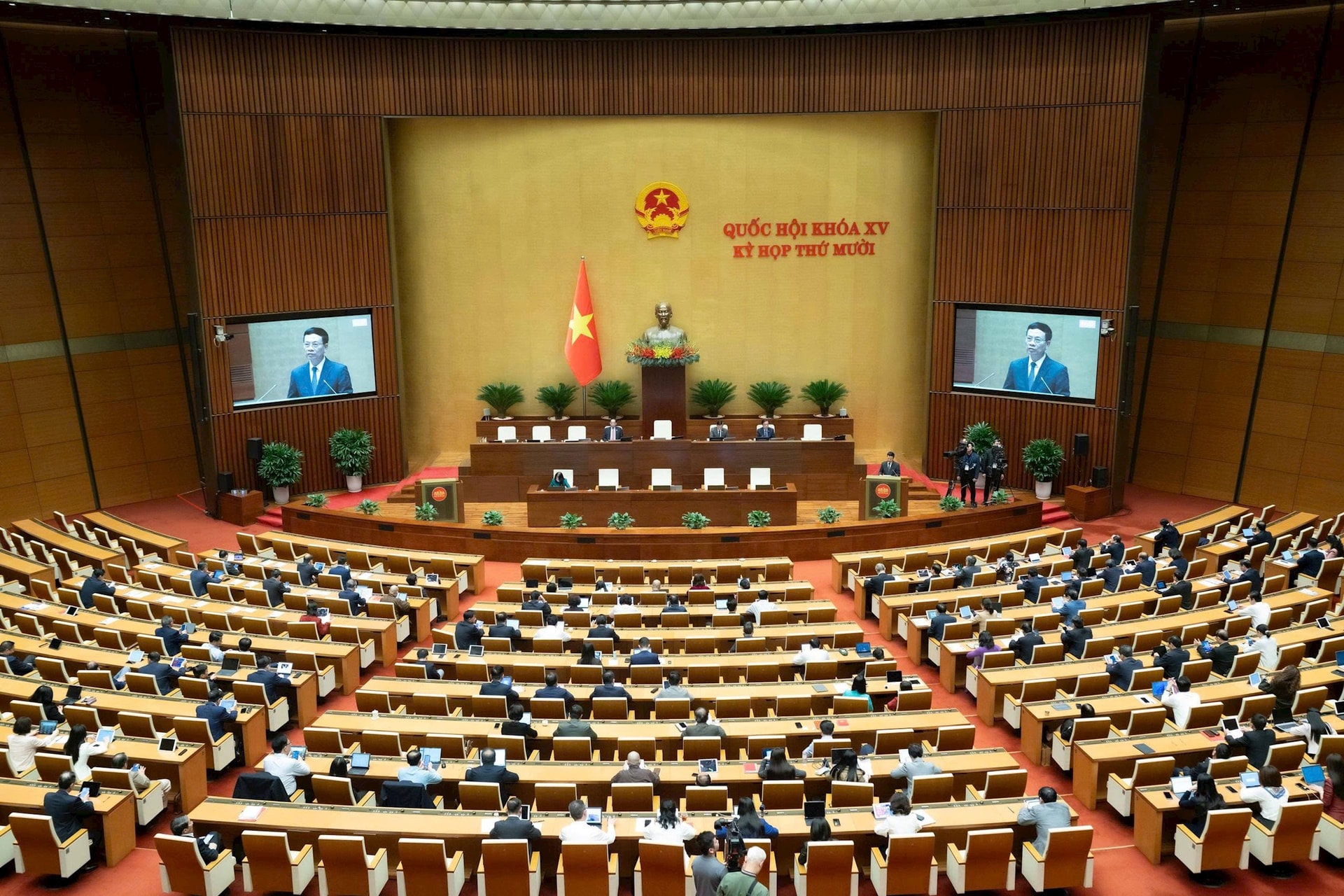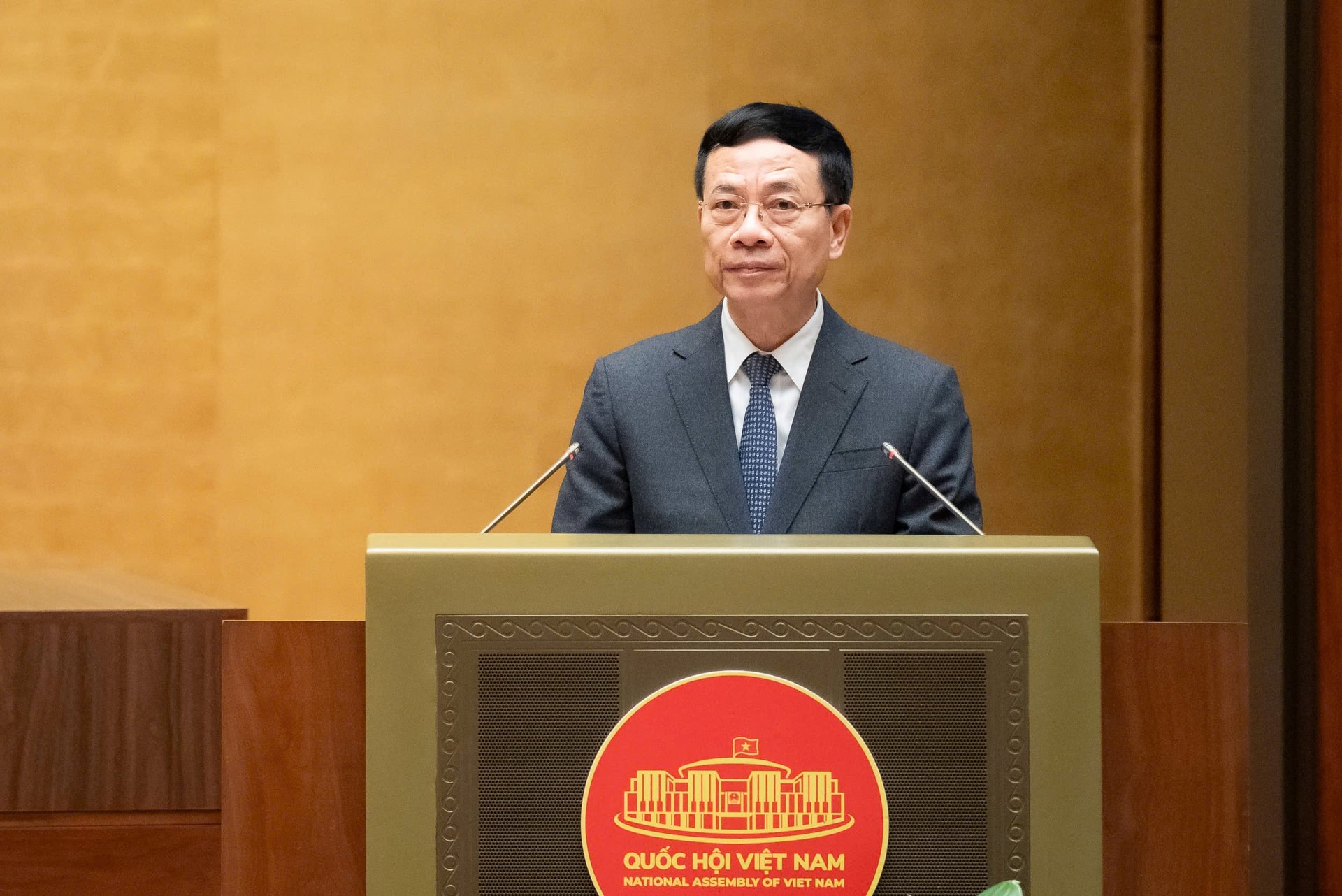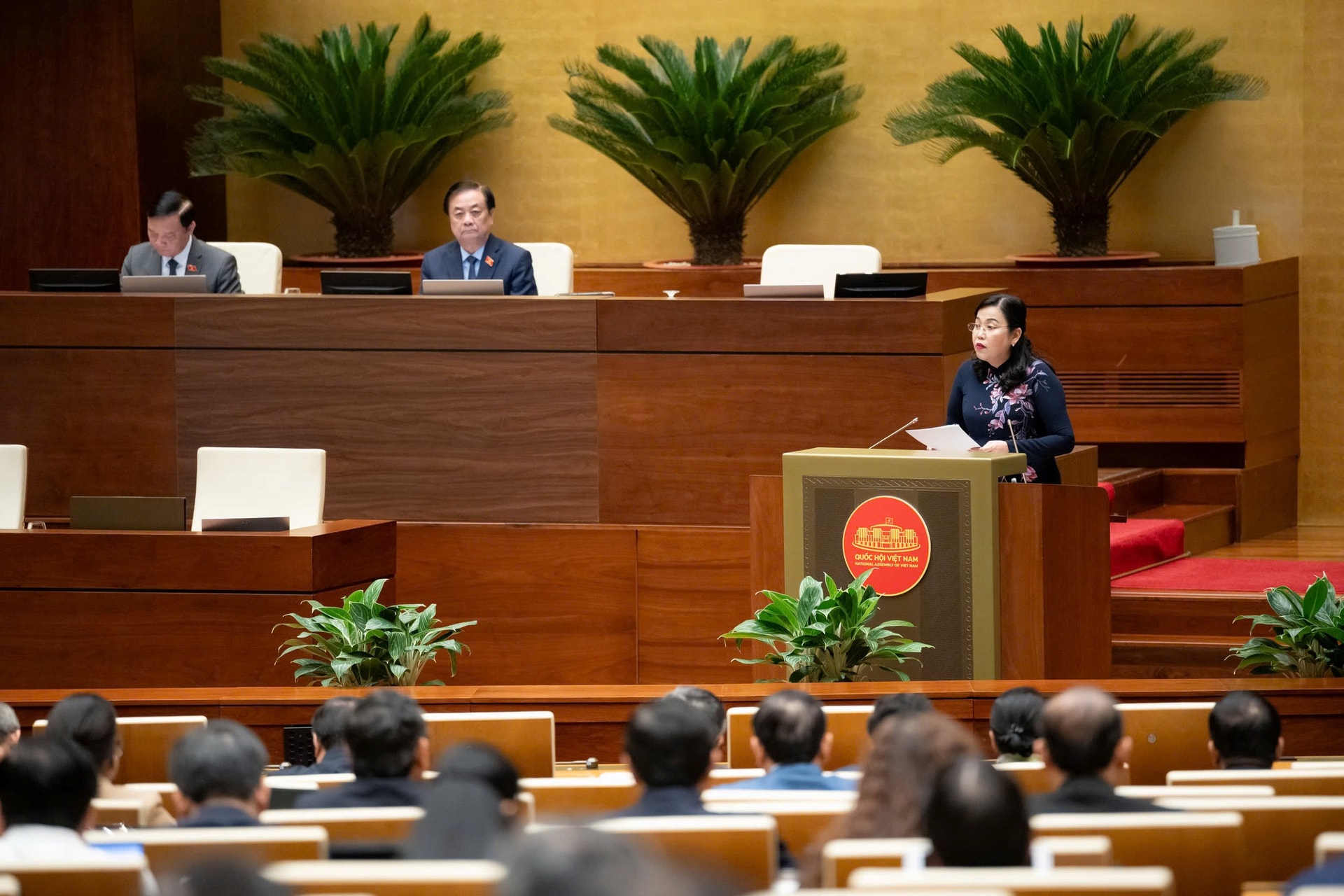Law on Artificial Intelligence: Balancing regulation and fostering innovation
The Law on Artificial Intelligence (AI) is a framework law, designed to be flexible and adaptable to the rapid pace of technological development; it systematically and comprehensively stipulates measures aimed at balancing management with the promotion of research, development, deployment, and application of AI in Vietnam.
On the morning of 21 November, 2025, under the chairmanship of Vice Chairman of the National Assembly Lê Minh Hoan, the XV National Assembly held a plenary session at the Hall to consider the Government’s submission on the draft Law on Artificial Intelligence.
Minister of Science and Technology Nguyễn Mạnh Hùng, on behalf of the Government, presented the draft content, emphasizing the importance of completing a legal framework to comprehensively manage and control risks arising from AI.

According to Minister Nguyễn Mạnh Hùng, the development of the Law aims to concretize major resolutions of the Party and the State on science, technology, innovation, and digital transformation. At the same time, it creates a favorable legal environment to promote innovation, enhance national competitiveness; manage risks, and protect national interests, human rights, and digital sovereignty.
The draft Law consists of 8 chapters and 36 articles, detailing the activities of researching, developing, providing, deploying, and using AI systems in Vietnam; specifying the rights and obligations of organizations and individuals; and defining responsibilities for state management of AI activities in Vietnam.
The Law on Artificial Intelligence is a framework law, designed flexibly to keep pace with rapid technological development; it systematically and comprehensively stipulates measures to harmonize management and the promotion of research, development, deployment, and application of AI in Vietnam.
At the same time, the Law places humans at the center with the supreme principle that AI serves humans, does not replace humans, and important decisions must be supervised by humans; AI systems must be transparent, accountable, and safe.
The draft Law adopts a risk-based management approach (low, medium, high, and unacceptable risk), classifying AI systems according to different levels corresponding to transparency, labeling, accountability, conformity assessment, and incident handling requirements.
Notably, certain special sectors such as national defense, security, intelligence, and cryptography are excluded from the scope of regulation to align with their separate management mechanisms.
A legal framework that inherits and improves
Minister Nguyễn Mạnh Hùng stated that the draft Law inherits and simultaneously abolishes AI-related regulations in the Law on Digital Technology Industry (Law No. 71/2025/QH15). The Law also supplements “legal gaps” to improve the legal system governing AI.

In addition, the draft Law selectively references international legislation and practical experience, ensuring alignment with Vietnam’s conditions and treaties to which Vietnam is a member.
The Law clearly defines the rights and obligations of domestic and foreign organizations and individuals involved in AI activities in Vietnam or supplying AI outcomes used in Vietnam. The Ministry of Science and Technology is assigned as the lead drafting agency, serving as a “coordination hub” among ministries, experts, enterprises, and research communities, while learning from legislative experiences of various countries and international organizations.
Proposal to supplement regulations on training, research, and social impact assessment in the Law on AI
On behalf of the appraisal agency, Chairwoman of the National Assembly’s Committee on Science, Technology and Environment (the Committee) Nguyễn Thanh Hải stated that the draft Law adheres to major Party and State orientations on science and technology development, innovation and digital transformation. She also emphasized that management and promotion are not opposing goals. Transparent and effective management is the foundation for sustainable development. This is a core issue influencing all policies in the draft Law; therefore, the Committee proposes changing the phrase “balancing” to “harmonizing” management and promotion to better reflect this view.

On behalf of the appraisal agency, Chairwoman Nguyễn Thanh Hải affirmed that the draft Law follows the major orientations of the Party and State on science and technology development, innovation and digital transformation.
She highlighted that management and promotion are not opposing goals. Transparent and effective management is the foundation of sustainable development. This is a core issue that shapes all policies in the draft Law; therefore, the Committee recommends replacing the term “balancing” with “harmonizing” between management and promotion to express this viewpoint accurately.
The Committee also highly values the necessity of promulgating the Law on Artificial Intelligence to supplement an existing legal framework, establishing a unified, coherent, comprehensive, and flexible management mechanism suitable for the AI domain; while fostering integration and mutual recognition of technologies. This contributes to enhancing Vietnam’s position in global value chains and expanding international cooperation in AI.
The Committee proposes that the Ministry of Science and Technology continue reviewing and institutionalizing Party and State policies on developing AI for humans and sustainable development; improving labor productivity through AI applications; promoting public–private partnerships in developing data infrastructure, high-performance computing infrastructure, and high-quality human resources.
One of the emphasized issues is the scope of regulation. According to the Committee, the current draft adopts quite a broad approach; however, the boundaries between the Law on Artificial Intelligence and related laws such as the Law on Science, Technology and Innovation, the Data Law, and the Law on Digital Technology Industry still require clarification to avoid overlaps.
At the same time, the Committee recommends expanding the scope of regulation and adding provisions on intermediary entities, ensuring comprehensive management of the AI value chain and preventing risks arising from platform providers and foundational models.
The Committee also proposes adding regulations on training, research, development, and internal testing, as high-risk AI systems even when used internally can still cause serious technical incidents or cybersecurity risks if not properly controlled.
Additionally, the Committee notes that the framework-law approach is appropriate in practice. However, given the fast pace of AI development, the need to amend the Law in a short period is foreseeable. Some opinions suggest that the Law on Artificial Intelligence may become a foundational law, with each specialized field requiring a separate chapter on AI in the future.
Chairwoman Nguyễn Thanh Hải further proposes adding a separate section on AI use in training, research, and innovation. The current draft lacks provisions on this matter. This is a domain generating breakthroughs and exceptional values beyond human capability using traditional approaches, for example, AI assisting in protein design and discovering new materials unknown to humans yet remains unaddressed.
Moreover, AI development will significantly affect human employment opportunities, privacy rights, and various cultural and ethical values. Therefore, the Law should include principles for assessing AI's social impact, along with measures to respond to societal changes caused by AI./.
Translated by Vietnam Journal of Science and Technology (VJST - MOST).

